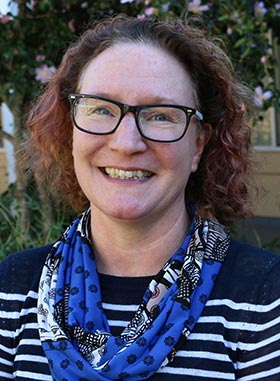
“By far the biggest hit was the clinical placements. Everything else they could learn online but not their clinical skills,” NZNO principal researcher Jinny Willis said.
Willis hoped the schools would be better prepared to support those students who struggled during lockdown, if another one occurred. “Most did well and got through but a particular few who didn’t so let’s explore the issues for those students.”
Just under 700 student members responded to the April/May survey – nearly a third of the 2266 invited, Willis said.
Students shared the findings with 18 or so heads of school in Wellington on July 9.
The biggest problems reported were lack of practical experience, collegiality and feedback, as well as a quiet place to work.
Nearly 70 per cent reported disruption from COVID-19, including 18 per cent “significantly”. Clinical placements were an issue for 83 per cent of respondents – including 40 per cent who experienced major impact as placements were dropped, fewer or shorter.
However, just over half – 55 per cent – said they were well supported to catch up with the lost clinical hours. Schools extended future clinical placements or the 2020 academic year, offered catch-up labs or altered their 2021 programme to help with catching up, students reported.
Te Rōpu Kaiako Tapuhi – Nurse Educators in the Tertiary Sector (NETS) co-chair Clare Buckley said the students’ presentation “reinforced” what schools already knew.
Schools went to “huge lengths” to support students, which she believed was reflected in the survey and 2020’s completion rates. Schools supplied laptops, internet bundles and hardship grants, as well as ensuring staff were available and a flexible timetable. Extra “clinical labs” and other alternatives to practicum were arranged, she said.
Student co-leader, Te Runanga Tauira chair Kimmel Manning, said, “we felt heard and you could see they would want to work with us.
“Today, what I saw was a willingness to have the research and to hear about these issues and take them back to our regions and discuss with our leadership.”
Lack of understanding
A third of students surveyed also reported being asked to work outside their scope of practice on placements, suggesting a lack of understanding by preceptors.
Only half regarded their preceptorship as “high quality”. Students valued patience and understanding most highly in their preceptors, Willis said.
She also hoped nurses who were asked to be a preceptor would try to remember what it was like – and how valuable patience and understanding were to students. “We forget we were at the beginning once.”
Nurses were usually asked to be preceptor on top of their everyday work, with no extra reward or acknowledgement, which could be “frustrating”, Willis said. “I wonder if they were acknowledged or rewarded if it would make a difference.”
- Just under a third of respondents considered dropping their studies because of COVID-19. Most – 82 per cent – were able to complete their studies but 18 per cent were not able to.
- Just over a quarter believed their future plans were jeopardised or affected in some way.
- Increased financial pressure was experienced by 49 per cent of respondents during lockdown with less part-time work available, closure and redundancy or becoming the sole income earner.
- Sixty per cent did not have a peer mentor or buddy at their school, or opportunities to meet students from other nursing classes. A quarter reported mentors outside of their school, such as qualified nurses.



